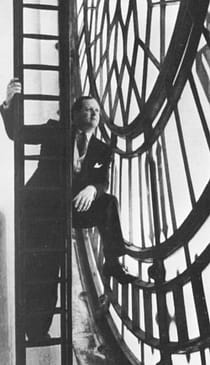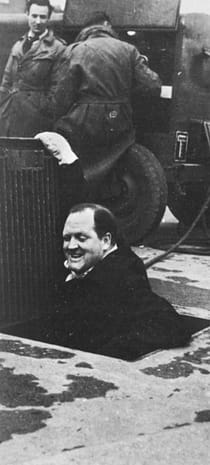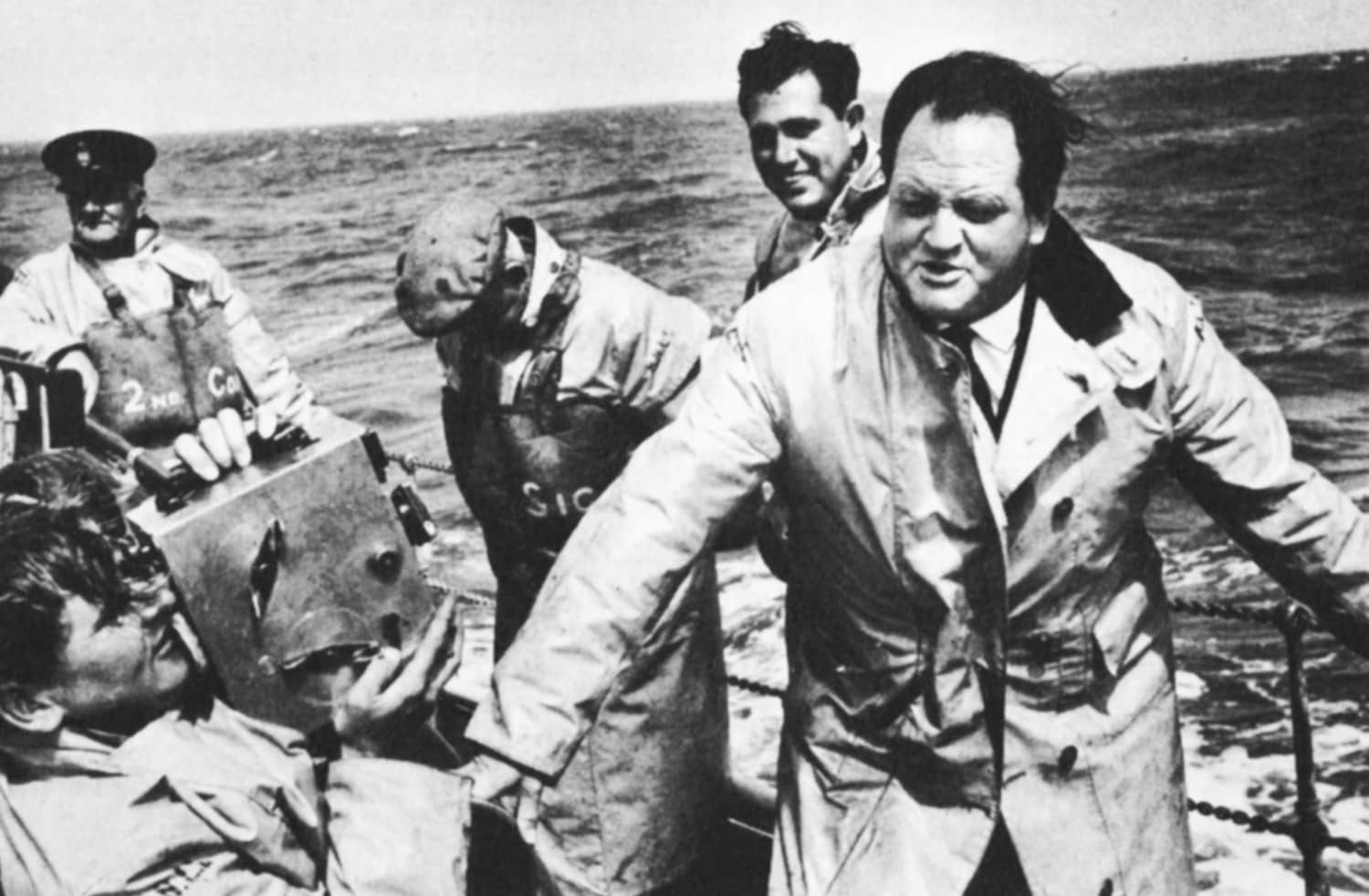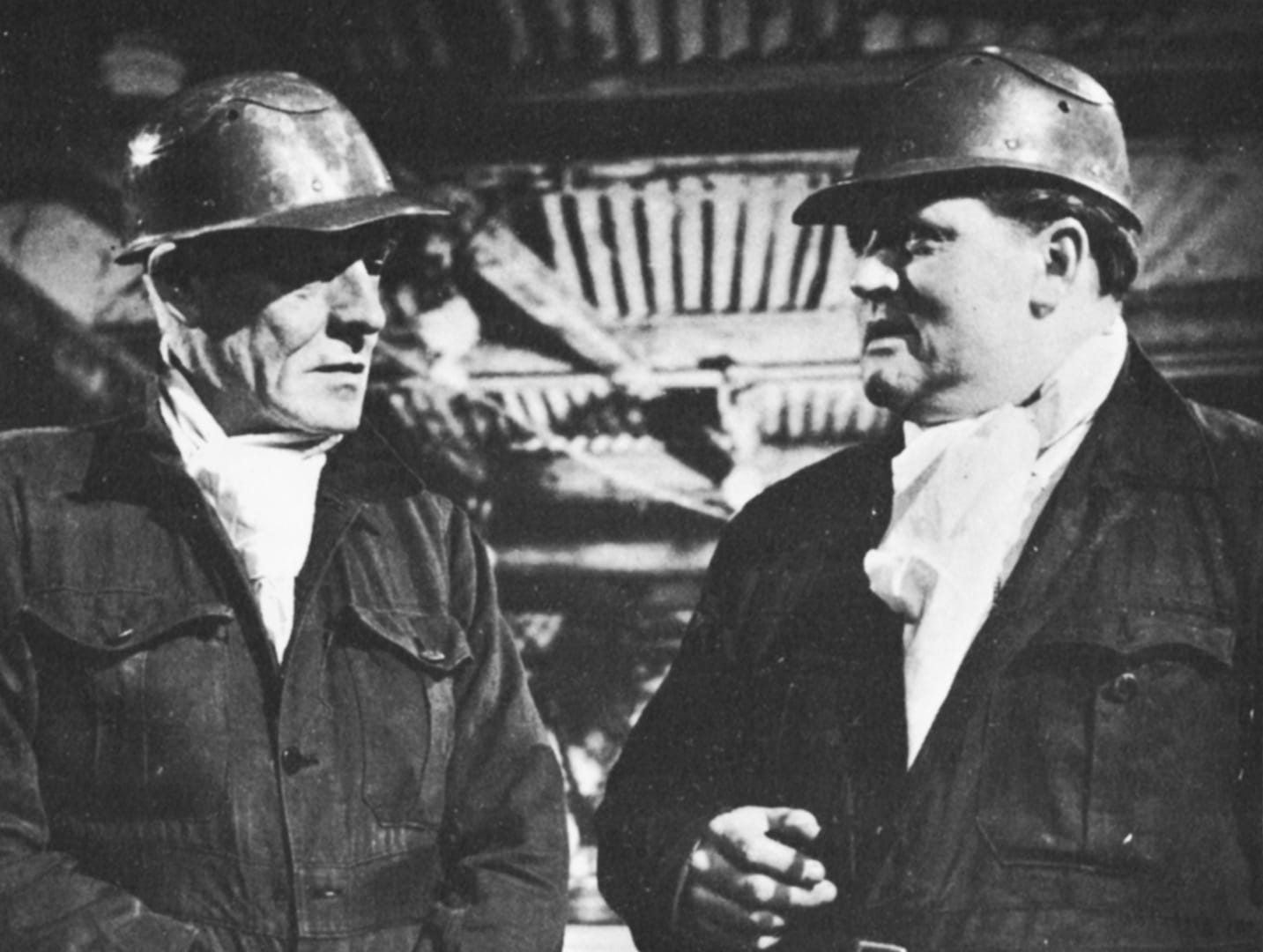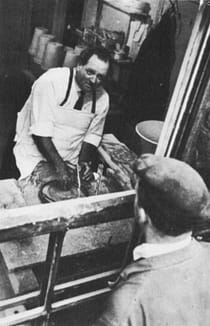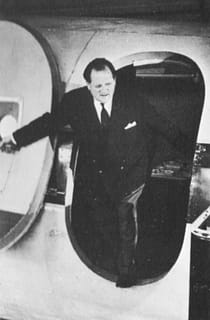I first met Richard in 1951. We were both going to the Festival of Britain, I for the BBC’s Picture Page, he for another television programme. I had lost my BBC staff pass. Richard said, ‘Find some piece of paper and wave it about’. I happened to have been working on papers about the Great Exhibition of 1851 and had in my pocket an entry pass to that exhibition of a century before. Following Richard’s advice I shoved it in my wallet and used it for several days to enter the Festival with no one noticing.
Shortly afterwards, Stephen McCormack enlisted me to join George Moresby White as co-writer of London Town, already a top rating 45-minute television magazine about the world’s greatest city.
The mercurial McCormack, loyalist, royalist, empiricist, humorist, was the ideal mentor, foil and friend for the incredibly busy Dimbleby, who was juggling his diary with Down Your Way, Twenty Questions and much more.
London Town was, in the best of all possible senses, the product of a team – Richard Dimbleby himself, a producer studio director, a film director, two writers, and a production secretary. Looking back, and when I consider how technically difficult it was (at the time), it now amazes me how much one has to pay these days for sledge-hammers to crack peanuts. Richard earned peanuts for what he did, and so, in fact, did we. No matter: it was tremendous fun. Richard always treated us as professionals, and so did Stephen McCormack, and in this way we learned our trade.
The areas we covered together were enormous. I imagine some people remember London Town, with its four or five items, covering such diversities as Lloyd’s, the College of Arms, the sewers, the dustmen, Greenwich and Of Alley (that oddly named street called after the Duke of Buckingham), Smithfield and Billingsgate, St Bride’s and the Tower of London. The brief was to produce a programme about London which would interest the London audience. There was no great social content. We didn’t knock anyone; we merely tried to find out how they ticked.
In time, and as BBC television network away from London expanded, London Town became About Britain.
Stephen Hearst joined me as co-writer for Richard and we went through the team process all over the country. Later we wrote for him in Malta and Vienna before the team broke up.
The machinery was this. McCormack would come with us on reconnaissance to a given area – Wales, Skye, Edinburgh, Cornwall, Ulster. In co-operation with the BBC Sound experts we would construct a script. This started as a film shooting-script, which was handed over to John Rhodes. Whilst Rhodes was filming McCormack and Dimbleby on the spot, Hearst and I would be working up the studio sequences. The machinery was such that filmed shots could be matched with studio sets on back projection.
When it came to the ‘live’ show much, and indeed all, depended on the professional rapport between Richard and Stephen McCormack. The show was usually studio-based, which meant that Richard had to rehearse and master his exact cues into film, and his moves left to right, right to left. He was dealing on the studio floor with participants who had no experience of marks and moves and telecine. Together with McCormack, he had the knack of putting people at their ease. Hearst and I often wrote the most complicated moves and cuts for him, from film to studio, from set to set across the studio. So far as I can recall he never got one wrong.
Hearst and I were usually up in the production gallery for transmission, standing behind McCormack. He took our badgering with the humour and calm which characterises him. I remember one time when an essential camera failed, McCormack simply said ‘good’ and pressed on. On the studio floor Dimbleby got the message and reacted as if nothing had happened.
He never queried anything we wrote for him unless it didn’t square with his particular view of the world. He would reject anything he thought snide or sour in the commentaries which we used to write for him overnight and sometimes only just before he recorded. I once suggested that he should say that a particular place in Wales was ‘ugly’. This he couldn’t take and asked for my co-operation in saying that ‘X is not the prettiest town I have seen’. A professional without malice is a rare bird.
In 1955 Independent Television started, and both Stephen McCormack and Peter Hunt went off to join its ranks. Richard Dimbleby received many tempting offers from the commercial companies to go over to them: he always refused, never asking the BBC even for a guarantee contract. He was a freelance who wished to broadcast only for the BBC, for fees which were agreed and regularly revised without acrimony.
He was naturally used for all the great state outside broadcasts, but one of his reasons for deciding to stay on the BBC side of the fence (apart from a profound belief in public service broadcasting) was his personal satisfaction that he had at last achieved a weekly current affairs programme in which his past experience in news and his wide knowledge of other countries could be regularly used to proper effect.

